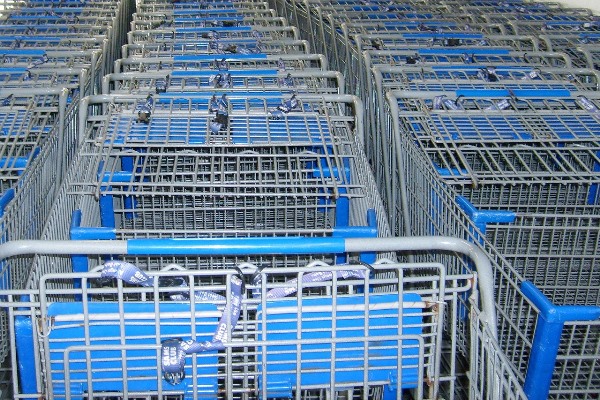Safety in the Retail Environment

Many believe that there are very few safety risks working in a retail store. This is far from the truth. Every work environment including retail stores have many safety risks that you must keep in mind.
As you may have heard, repetitive strain injuries are a common risk in retail businesses. These injuries cause damage to your muscles, tendons and nerves, and can develop over time when you do the same task over and over.
To prevent repetitive strain injuries, use good posture. Besides standing or sitting up straight, work with your arms and hands in a relaxed, natural position. Grasp items with your entire hand, not just your thumb and forefinger. Avoid twisting your wrists as you swipe the scanner, stock shelves or do other repetitive work. Take your scheduled breaks to move around, stretch and relax. Talk to your boss if you develop signs of repetitive strain such as pain or numbness in your hands.
Back injuries are also a common hazard of retail work, as you wrestle large boxes of product onto handcarts and lift groceries into customer vehicles. Lift safely by getting as close to the load as possible and squatting down to pick it up and put it back down. Avoid leaning over or bending or twisting your back.
Slips and falls are a hazard in a retail store too. When you clean up spills or remove debris you are not only protecting the customer from falls, you are protecting yourself.
Shelf stocking also has its hazards. Use ladders and other climbing devices safely. Never attempt to "bunny hop" a ladder to a new location. Instead, climb down and move it.
Properly use a safety knife to open cartons, and always pay attention to what you are doing if you don’t want to leave a finger behind.
Probably the most dangerous piece of equipment in a retail workplace is the compactor-shredder, a machine used to prepare paper, cardboard and other materials for recycling or disposal. Many young workers have died gruesome deaths in compacting and shredding machines in workplaces. Compactors use powered rams to crush materials and shredders use blades to chop materials into small pieces —think what they can do to you. Before you use one of these machines, make sure you get thorough training from a qualified instructor. Read and understand the manufacturer’s operating instructions. Never attempt to bypass a machine safeguard because it’s there to save your life. Don’t let anyone talk you into taking shortcuts with a compactor-shredder. Even if you just work near such a machine, make sure you know how to stop it instantly in case someone else gets in trouble.
